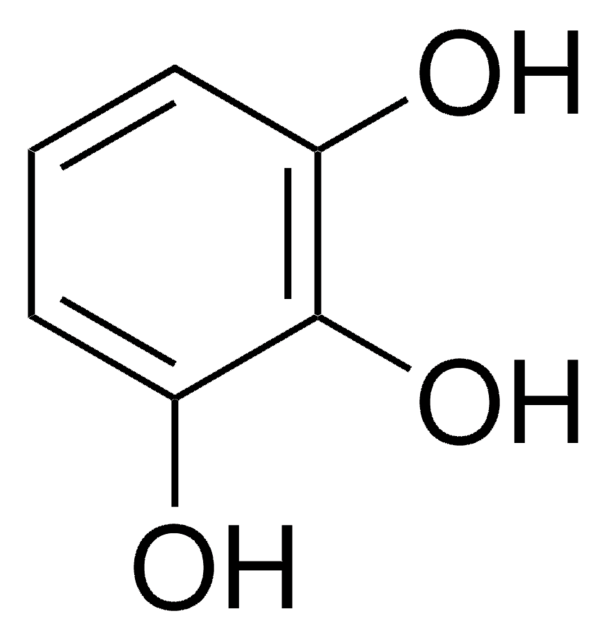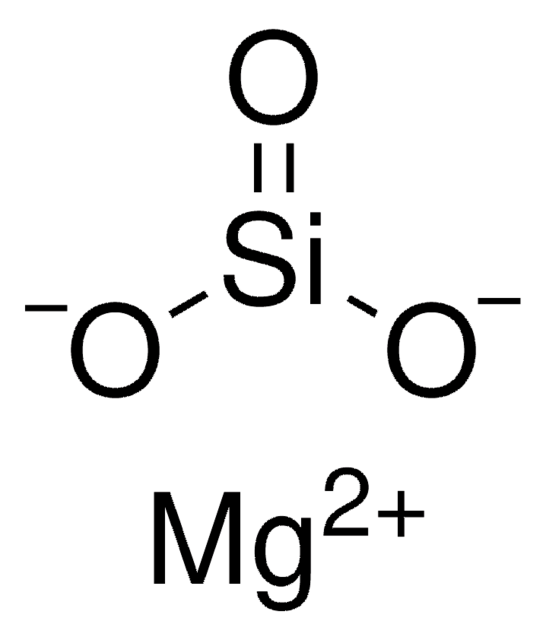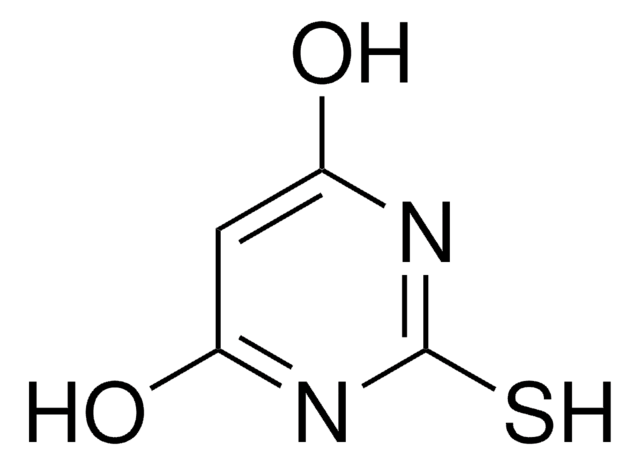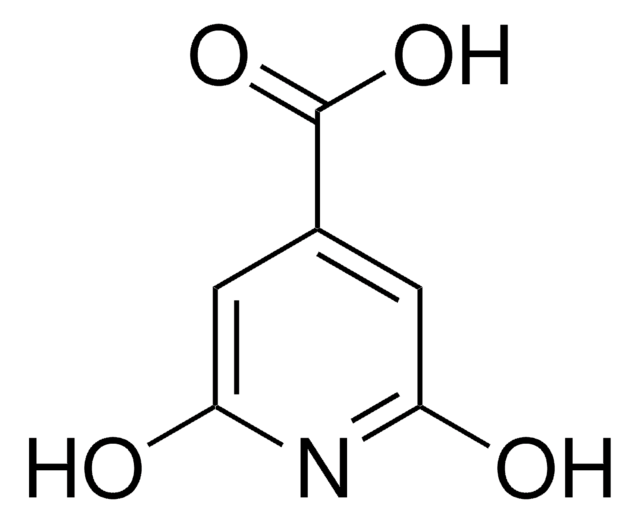16040
Pyrogallol
ACS reagent, ≥99%
Synonym(s):
1,2,3-Trihydroxybenzene, 2,3-Dihydroxyphenol, Pyrogallic acid
About This Item
Recommended Products
grade
ACS reagent
Quality Level
vapor density
4.4 (vs air)
vapor pressure
10 mmHg ( 167.7 °C)
Assay
≥99%
form
solid
technique(s)
HPLC: suitable
ign. residue
≤0.005% (as SO4)
bp
309 °C (lit.)
mp
131.0-135.0 °C
133-134 °C (lit.)
solubility
water: soluble
anion traces
chloride (Cl-): ≤10 mg/kg
sulfate (SO42-): ≤50 mg/kg
cation traces
Fe: ≤0.001%
heavy metals (as Pb): ≤0.0005%
application(s)
pharmaceutical (small molecule)
SMILES string
Oc1cccc(O)c1O
InChI
1S/C6H6O3/c7-4-2-1-3-5(8)6(4)9/h1-3,7-9H
InChI key
WQGWDDDVZFFDIG-UHFFFAOYSA-N
Looking for similar products? Visit Product Comparison Guide
Application
Biochem/physiol Actions
Signal Word
Warning
Hazard Statements
Precautionary Statements
Hazard Classifications
Acute Tox. 4 Dermal - Acute Tox. 4 Inhalation - Acute Tox. 4 Oral - Aquatic Chronic 3 - Muta. 2
Storage Class Code
11 - Combustible Solids
WGK
WGK 2
Flash Point(F)
Not applicable
Flash Point(C)
Not applicable
Personal Protective Equipment
Choose from one of the most recent versions:
Already Own This Product?
Find documentation for the products that you have recently purchased in the Document Library.
Customers Also Viewed
Our team of scientists has experience in all areas of research including Life Science, Material Science, Chemical Synthesis, Chromatography, Analytical and many others.
Contact Technical Service











